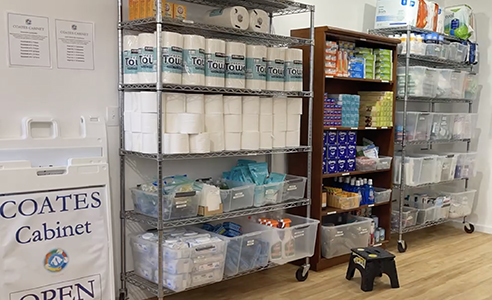||| MIDNIGHT MUTTERINGS by JACKIE BATES |||
I haven’t seen it yet, but will ASAP, although it’s already pretty late for tonight. So tomorrow night? For those of you who already know about Shirley Chisholm, she needs no introduction. You might have licked a stamp honoring her a few years ago. For the other four of you, she is someone you do need to know about and the easy way do that is to watch the movie from the comfort of your home.
For me, well, I’m thrilled Shirley Chisholm has a movie made about her and her extraordinary life. She has been my hero for more than fifty years, since she ran for the Democratic nomination for President of the United States in 1972. Some nerve. She lost that nomination to George McGovern who then lost his presidential bid to Republican Ronald Reagan.
“I’ve always met more discrimination being a woman than being black,” Chisholm told The Associated Press in December 1982, shortly before she left Washington D.C. to teach at Mount Holyoke College in Massachusetts. “When I ran for the Congress, when I ran for president, I met more discrimination as a woman in politics than for being black. Men are men.” Chisholm was in the New York State Assembly 1965-1968 and in the US House of Representatives from 1969-1983.
Chisholm was first assigned to the Agriculture Committee. She asked for a change, thinking she might not be so useful to her constituents from a Brooklyn district. She has been quoted as saying that all they know in Washington, D.C. about Brooklyn is that a Tree Grows there.
(Silly name drop here: I actually met Betty Smith, author of A Tree Grows in Brooklyn on the beach on the Outer Banks of North Carolina when I was about thirteen. I had read the book, but understood a lot more when I reread it as an adult. For example, that it wasn’t about a tree as much as about a girl growing up in a situation much different from my own.)
I was long gone from the Bay Area of California and graduate school when I heard the quote above from Shirley Chisholm, though as I recall, she had said similar things earlier when she was seeking the Democratic nomination for President of the United States in 1972. I remember that her statements were hard to believe. Having grown up in the segregated South, I was aware of how difficult life was for anyone of color. And I was aware that it was a lot harder than it has been depicted in such books and movies as ‘The Help.’ And I have no doubt it was a whole lot harder than I knew.
I was well aware of how difficult things were for white women, and knew it must be far worse for our black sisters. Almost a century after the Civil War (so called the War Between the States) segregation in the South was in full blossom. In Life magazine in the 1950’s there was a photograph of segregated water fountains in the Sears Roebuck lobby. That photograph was taken in my home town of Raleigh North Carolina.
https://www.bing.com/images/search?q=photos%20of%20segregated%20water%20fountains&qs=SSA&form=QBIR&sp=4&ghc=1&lq=0&pq=life%20magazine%20segregated%20water%20fountains&sk=SSA3&sc=10-40&cvid=19BA06D5B3E74F3BB0D459B63397D317&first=1
And water fountains were the least of it. When I was (very briefly) in nursing school at the University of North Carolina at Chapel Hill at age seventeen, we had a tour of the hospital where floors and wings were designated by specialty. The third floor, however, was for ‘colored’ patients, regardless of their medical issues.
Years later, when I again lived in Chapel Hill where my second child was to be born, the one Black medical student (male) came to my hospital room and asked if he could be allowed at the birth. He said he knew the birth was expected to be complicated. (It was.) And he wanted to be there as his ‘side’ job was delivering babies at the ‘colored’ hospital seven miles away in Durham. He was at my delivery, probably the most experienced person in the delivery room, including the two Obstrectics professors, some resident physicians, and medical students, all white males. The black medical student was assigned to stay with me all night after delivery to oversee transfusions and other IV medications and to try to keep me alive. Because of the amphetamines, I was awake all night and the two of us exchanged stories, only to find out we were exactly the same age, had both grown up in Raleigh on different sides of town, had children the same genders, born the same years. We had parallel lives, but would never have met growing up, given our segregated lives.
That was possibly the most interesting night of my life. A few months later we ran into each other at a pizza joint. Each of us was with our families, but somehow he recognized me upright and clothed and we had a brief reunion. My family ate pizza at the restaurant while his was allowed only take out and I never saw him again. I have always wondered what it was like for him when he was required to ask my permission to be at the delivery when no one else was. All because he was Black and I was a white woman.
I’m not sure how this story is related to Shirley Chisholm, except to point out once again how those of us privileged by accident of birth can never really know the extent of what it’s like not to have been born to the privileged group. As Freud is said to have asked, ‘What does a women want?’ Apparently, Shirley Chisholm wanted to be President of the United States of America. The irony is, of course, today, such a woman as Shirley Chisholm might be more likely to be elected President of the United States of America. Or at least get her party’s nomination to run.
So watch the movie Shirley on Netflix and I will too. We’ll see how far we have come and how far we have to go. BTW, Barbara Lee, who was mentored by Chisholm, came to the movie set. She was asked how accurate the film (written and directed by John Ridley) was and Lee said it was all accurate, including the male colleague in the House of Representatives who repeatedly asked Chisholm if she made the same amount of money he did and how could that be.









Correction: Richard Nixon won the presidency in 1972, not Ronald Reagan.